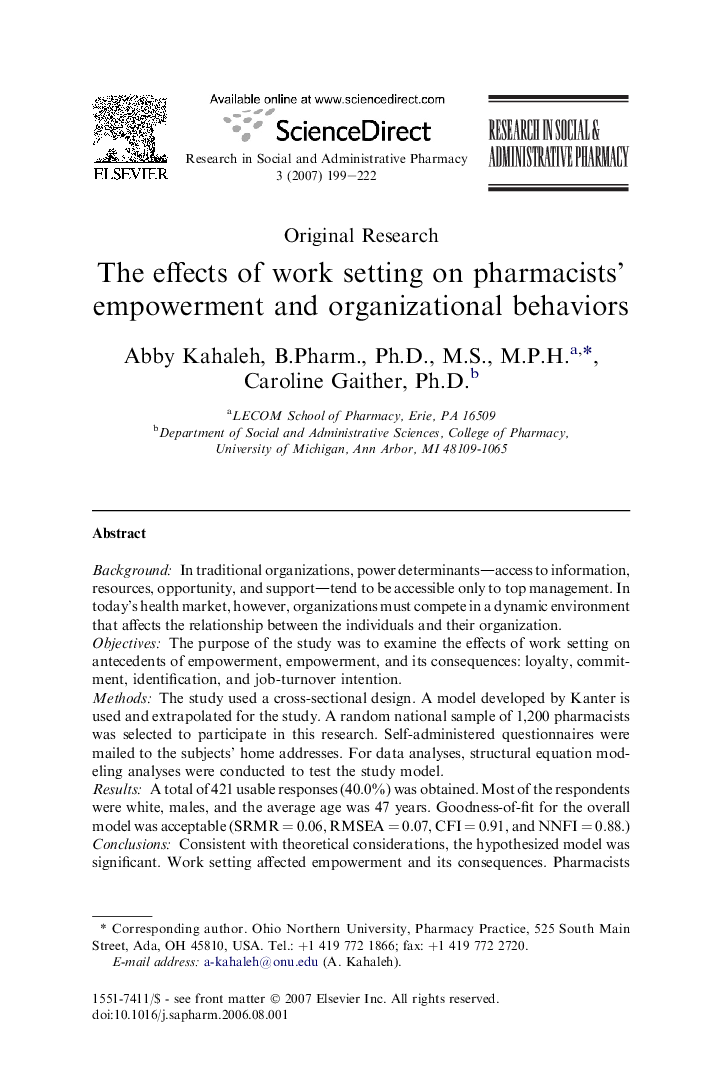| Article ID | Journal | Published Year | Pages | File Type |
|---|---|---|---|---|
| 2509056 | Research in Social and Administrative Pharmacy | 2007 | 24 Pages |
BackgroundIn traditional organizations, power determinants—access to information, resources, opportunity, and support—tend to be accessible only to top management. In today's health market, however, organizations must compete in a dynamic environment that affects the relationship between the individuals and their organization.ObjectivesThe purpose of the study was to examine the effects of work setting on antecedents of empowerment, empowerment, and its consequences: loyalty, commitment, identification, and job-turnover intention.MethodsThe study used a cross-sectional design. A model developed by Kanter is used and extrapolated for the study. A random national sample of 1,200 pharmacists was selected to participate in this research. Self-administered questionnaires were mailed to the subjects' home addresses. For data analyses, structural equation modeling analyses were conducted to test the study model.ResultsA total of 421 usable responses (40.0%) was obtained. Most of the respondents were white, males, and the average age was 47 years. Goodness-of-fit for the overall model was acceptable (SRMR = 0.06, RMSEA = 0.07, CFI = 0.91, and NNFI = 0.88.)ConclusionsConsistent with theoretical considerations, the hypothesized model was significant. Work setting affected empowerment and its consequences. Pharmacists who work in independent community pharmacies were more structurally empowered than their counterparts in hospitals or chain pharmacies. In each setting, organizational commitment and loyalty were significant predictors of job turnover intention. Increasing access to knowledge, opportunity, and support may reduce the likelihood of job turnover among chain and hospital pharmacists.
